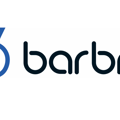The benefits of dual qualification for an international legal career
Rob Dudley, BARBRI Deputy Managing Director, International, discusses working across borders and how BARBRI can support those looking to dual qualify in another jurisdiction.
Whether you are a newly qualified Scottish solicitor or one with a good amount of experience, you already have a degree in another discipline or simply desire to expand your horizons, qualifying in multiple jurisdictions will serve your career, your clients, and your employer well. As clients conduct cross-border transactions with greater frequency, employers must be able to respond by offering counsel with jurisdictional flexibility.
A shrinking global legal market is something BARBRI recognised more than 50 years ago in the United States when it was founded to help students learn the law and legal concepts needed to pass a U.S. state bar exam.
Why practise across borders?
If you are a Scottish solicitor considering seeking admission in another jurisdiction, you are smart to do so. A challenging legal recruitment environment exists, so being dual-qualified is a way to distinguish yourself from the growing competition. Many international law firms give preference in recruitment to candidates who can exhibit expertise in more than one legal system.
Increasingly this means solicitors look to dual-qualify by taking the New York or California state Bar Exam, or becoming qualified through the Qualified Lawyers Transfer Scheme (QLTS) assessment in England and Wales. By passing a U.S. state bar exam or the QLTS assessment, you not only advance your career, you also advance your earnings potential. Firms value dual qualification and they are willing to compensate for it.
So how do you come to reap the benefits of dual qualification? The following answers to some frequently asked questions should help pave the way for you to internationalise your legal career.
What are the requirements for qualification in the U.S?
The U.S. offers opportunity to those who are fresh out of law school in Scotland as well as qualified, practising solicitors. New York state permits those who hold a minimum of a three-year law degree from a common law jurisdiction to apply for eligibility, while the California Bar allows any non-U.S. educated applicant from any country in the world to take the exam for admittance.
Today, BARBRI has a network of more than 1.3 million alumni and enrols around 40,000 students each year. Its international programmes focus on preparing non-U.S. law graduates and lawyers to be more employable around the world.
What is the dual qualification process like?
The first element of the process in the U.S. is to ensure a candidate is eligible to sit for the bar exam. BARBRI prepares candidates for the New York or California State Bar Exam over a 6- or 10-month period, and the student then sits the exam. This enables a path to qualification within the period of one year.
BARBRI also delivers training for the QLTS assessment to those who wish to dual-qualify in England and Wales. Here, candidates can choose to study the first part of the exam, the Multiple Choice Test (MCT), over the course of 3 or 6 months, and then the second part, the Objective Structured Clinical Examination (OSCE), directly thereafter over a 3-month period (provided they pass the MCT). The entire process can therefore take as little as 11 months.
How do I successfully manage work-life commitments?
Time is always a big consideration, especially if you plan to study alongside full-time employment. Because BARBRI offers an online and on-demand home study bar prep programme designed to be undertaken flexibly, it accommodates international law graduates and lawyers who have work and other commitments.
The support of a 1:1 mentor who is a U.S. (or U.K.) qualified lawyer helps you focus your studies to get the most preparation in a timely and easily digestible form. If you find the format of testing through multiple choice questions quite foreign, BARBRI’s Personal Study Plan (PSP) has a bank of thousands of practice questions to ensure you are fully prepared for this type of exam.
As you make decisions about your bar studies, be sure to find the support of a programme that is designed specifically for non-U.S. graduates and focuses on the exam techniques international students find difficult to master. You should also look for learning that is written and delivered by U.S. law professors and practitioners who are specialists in their respective areas.
If your sights are on the QLTS exam, look for a preparation course that gives solicitors thorough grounding in English law and contains skills assessments to enable you to practice competently in England and Wales. Whatever your path to dual qualification, be confident that you will have the knowledge to achieve exam success.


